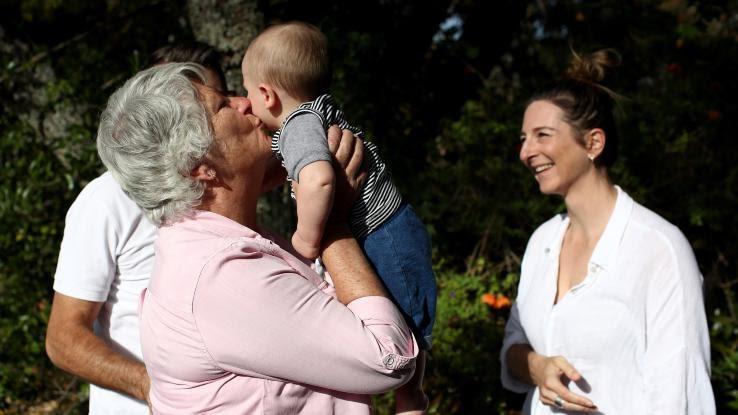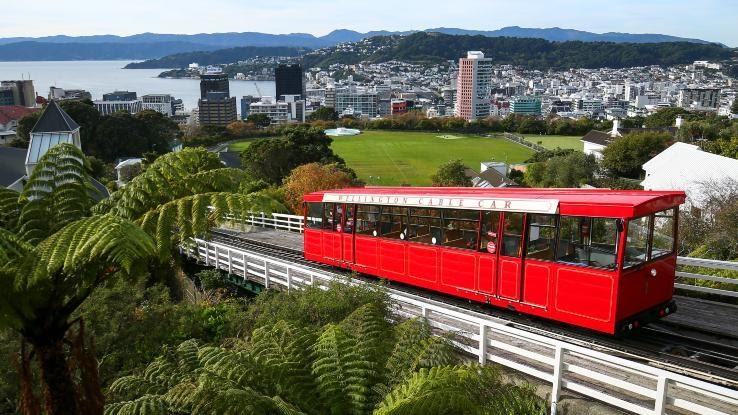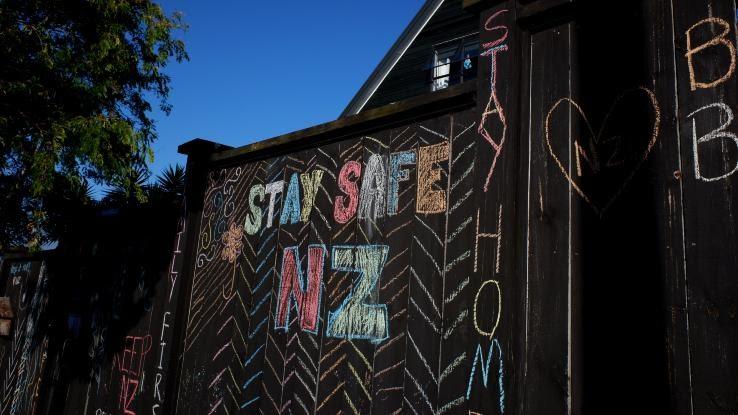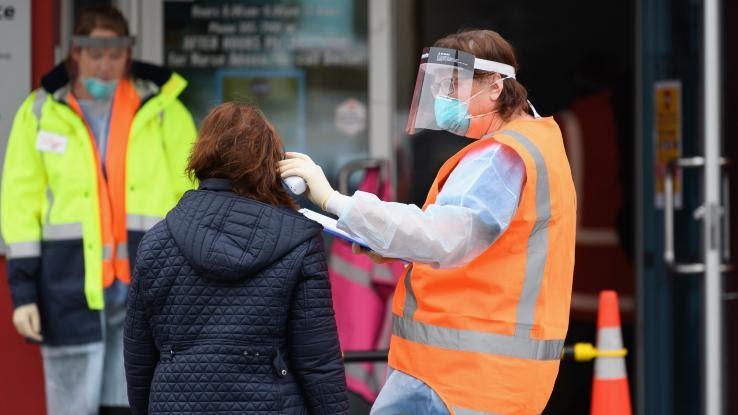Holiday Homes Hokitika Nz

From May 23 to June 14, 2020, New Zealand experienced absolutely zero new coronavirus cases. These numbers stand in stark contrast to the totals coming in from many other countries around the world, including the United States, which reported more than 500,000 new cases during that time.
Throughout 2020, New Zealand experienced a few spikes in positive cases: In August, positive COVID-19 infections peaked at 19 cases, and, in October, officials recorded a high of 25 positive cases. Although there has been no community transmission of the novel coronavirus in New Zealand since November 18, 2020, around 10 cases were recorded in mid-December, stemming from the travelers using the country's extensive hotel quarantine system.
All of this to say, New Zealand has continued to keep novel coronavirus cases at bay. To date, New Zealand has seen 2,181 cases of COVID-19, whereas, to date, the United States has seen a staggering 20.7 million cases. The disparity between these infection rates has prompted many to question just how New Zealand was able to "beat" COVID-19. Amid fears of a new strain of the virus, New Zealand is continuing to exercise caution and, in doing so, has set an example we could all learn from.
Free Community Testing
While the initial testing procedures in New Zealand instructed healthcare workers to only test those who had recently traveled and were experiencing multiple COVID-19 symptoms, the country quickly eased these restrictions to allow for greater testing. New Zealand has about 4.8 million people, and, to date, fewer than .03% of the population has caught the novel coronavirus to date.

Part of the country's success can be attributed to just how early on the testing began. Between late February and late May 2020, nearly 6% of the country's population was tested for COVID-19. Free voluntary testing was offered in supermarkets all across the country, allowing scientists to get a glimpse into small and large communities and monitor if the virus was still infecting new people in those areas.
If the New Zealand government had waited to secure testing supplies for its citizens and failed to implement widespread testing procedures, it's possible the virus could have spread much faster. Individuals with confirmed diagnoses of COVID-19 must isolate themselves to remove the risk to their community, and widespread testing makes that safety measure possible. With greater testing comes greater societal safety, shorter lockdown periods and more rapid medical response to those who need it the most.
Three days before New Zealand experienced its first real respite from COVID-19, the country's Ministry of Health released the NZ COVID Tracer app. This smartphone/tablet application encourages citizens to set up an account with their personal information and then allow the app to monitor their movements via scannable QR codes on the exteriors of buildings. GPS features may be added in the future.

Users who access the app can also report troubling symptoms. After the symptoms are reviewed, the user may be referred to a nearby testing facility. If they test positive, they will receive an abundance of information about self-isolating at home, or they can immediately seek treatment at a medical center.
Contact tracing has allowed the government to deploy supplies and services to those with the greatest need. While some may not approve of the monitoring aspect involved in contact tracing, it has helped quell the coronavirus outbreak. With each passing week, contact tracing helps eliminate the resurgence of new cases.
Shelter-in-Place Policies
Stay-at-home pleas and campaigns often came too late and received too little enforcement in countries such as Italy, England and the United States. New Zealand's citizens began self-isolating in March, and they took the shelter-in-place mentality seriously. Without a doubt, it helped that the nation's Prime Minister, Jacinda Ardern, used Facebook to communicate with her fellow Kiwis throughout the shelter-in-place period. Her down-to-earth nature, friendliness and requests for kindness and understanding helped encourage others to follow suit. Citizens were allowed to leave their homes for essential needs, but the streets quickly became barren places.

With the majority of the population staying safe in their homes, the community spread of the virus immediately stagnated and, for a long time, ceased. Over the summer, the government launched a campaign urging folks with a cough to "sit this one out," creating a communal spirit around fighting the spread of the virus, all while acknowledging the challenges of lockdown. This trend is one of the most powerful examples of what a dedicated, compassionate and careful community can do to protect themselves from COVID-19. Because this mutual lockdown was so successful, the country began to lift restrictions only a month or so after its initial inception.
Consistent Communication
Communication between the New Zealand government and its people has been exceptionally straightforward and clear during the COVID-19 pandemic. Mostly, this communication came in the form of Prime Minister Jacinda Ardern's Facebook chats, although official press conferences were held before and after the shelter-in-place period.

Still, the people in New Zealand saw their elected leader taking extreme measures to protect herself, her family and her fellow citizens from catching the novel coronavirus. She had no qualms about washing her hands, restricting her outdoor movement and activities, and using a face mask and gloves when she had to buy groceries.
She provided an excellent example for others to follow, and she made a habit of logging on and opening a dialogue between herself and her constituents via Facebook Live. These consistent and heartfelt updates kept citizens informed and calm and ultimately helped curb continued panic-buying and stockpiling.
Conscientious Residents
While the Prime Minister was administering hopeful talks from home, the people were listening. For the most part, every New Zealand resident took the growing threat of infection seriously and did their part to reduce the spread of COVID-19.

This waterfall of protective action began with government suggestions and ended at home, where parents discussed safety measures and social distancing with their children. Before schools began to close, instructors prepared their students by addressing personal health and safety techniques (hand washing, wearing a mask, not touching your eyes or mouth).
Continued Efforts in 2021
In mid-June 2020, New Zealand reported its first new cases in more than three weeks when two women re-entering the country from the United Kingdom tested positive for the novel coronavirus. Thanks to contact tracing, officials were able to monitor the 302 individuals that the two women came into contact with, thus mitigating a serious outbreak.

Since that scare, New Zealand's Prime Minister deployed military personnel to enforce proper quarantine processes for travelers. While the country did close its borders for a time, it reopened them to citizens with a strict hotel quarantine procedure in place. That is, travelers are required to show a negative COVID-19 test before their departure and, upon their arrival, must undergo a two-week quarantine process.
So far, this system has helped curb infection rates — and it's clear that this kind of caution will be particularly instrumental as countries around the world navigate the new strain of COVID-19 that's cropped up in the United Kingdom. All of this to say, remaining vigilant seems to be the best course of action — one that other countries around the world could stand to replicate.
Source: https://www.reference.com/geography/reasons-new-zealand-beating-covid-coronavirus?utm_content=params%3Ao%3D740005%26ad%3DdirN%26qo%3DserpIndex
0 Response to "Holiday Homes Hokitika Nz"
Post a Comment